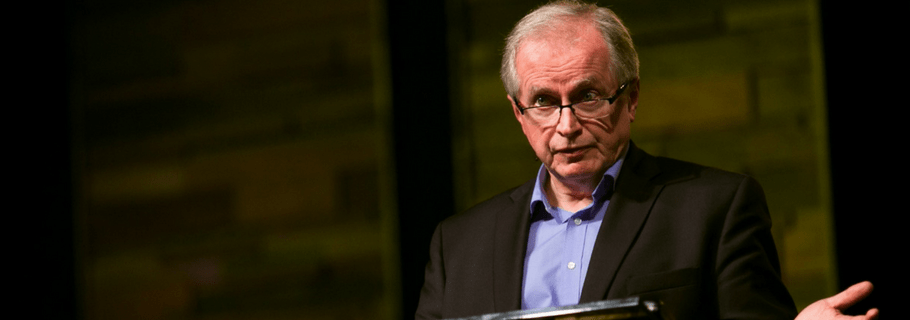Today’s post is written by D. A. Carson and is sponsored by Zondervan Academic.
Fifty or sixty years ago, most Christians in the Western world who chose to be involved in evangelism were trying to win people to Christ who already enjoyed some knowledge of the Bible, people who, culturally speaking, were not too dissimilar from us.
Whether we were involved in “personal work” (as one-on-one evangelism was then labeled) or speaking more formally to groups, the barriers to communication did not seem insuperable.
Of course, we all recognized that what was needed was a work of the Spirit of God: it is impossible simply to talk people into the kingdom. But most of the time it seemed we were, if not on the same page, at least in the same country and talking the same language.
All of this has changed. For a start, owing not least to worldwide immigration patterns, most of our cities are hives of racial and cultural diversity, including many people from places that provided little instruction in the Bible or the Christian faith.
Meanwhile, rising biblical illiteracy characterizes the majority of people in the West. The assumptions of the current form of secularism dictate that every individual enjoys not only the right but the obligation to choose their own path and identity: it is ugly and foolish to submit to self-proclaimed authorities, and those authorities that try to tell you who you are and what you must do—religious, traditional, governmental—are narrowminded, corrupt, and intolerant.
This means that most of the themes that tie the Bible together have little resonance in our world. Such themes as covenant, truth, sacrifice, temple, resurrection, priest, sin, atonement, and justification are not common topics of conversation when we gather for some Thai food or munch on a burrito.
Worse, in almost every case, the limited religious vocabulary of the contemporary Western world means something a little different from what those words mean in the Bible—faith, spiritual, truth, salvation, conversion. Seventy-five years ago, questions like “Where will you spend eternity?” and “Did you know that Jesus died to save sinners?” might not have been welcomed, but they weren’t displaced in the culture with questions like “What gender am I?” and “What is better for me, Netflix or Amazon Prime?”
The result of these changes is that it often feels as if Christians who share their faith, and the people with whom they are sharing, live in different worlds.
To change the metaphor, even brief conversations about religion feel a bit like two ships slipping past each other in the night, neither quite comprehending that the other is there.
Enter Sam Chan. Sam has thought deeply about what the gospel is, but also about what makes contemporary culture tick. He has a distinctive take on postmodernism and can talk knowledgeably about skepticism and plausibility structures, but he is driven by the gospel. No less important, he loves people and is himself engaged in both personal evangelism and public evangelism.
His book, Evangelism in a Skeptical World, is a helpful guide and stimulus to get on with the evangelism we know we should be doing but have sometimes abandoned because we feel intimidated. No more intimidation: the gospel is still the power of God that brings salvation, and Sam helps us recover that confidence.
This post is taken from the foreword of Evangelism in a Skeptical World. Pre-order the book or sign up for the course. Take a look at Sam’s FREE introductory videos:










